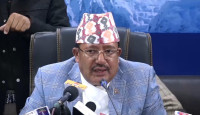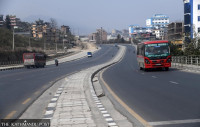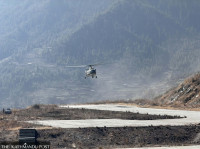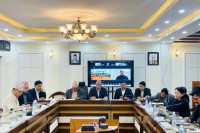National
16 of 17 envoy picks clear House hearing amid some questions
Nominations approved by majority, overriding objections.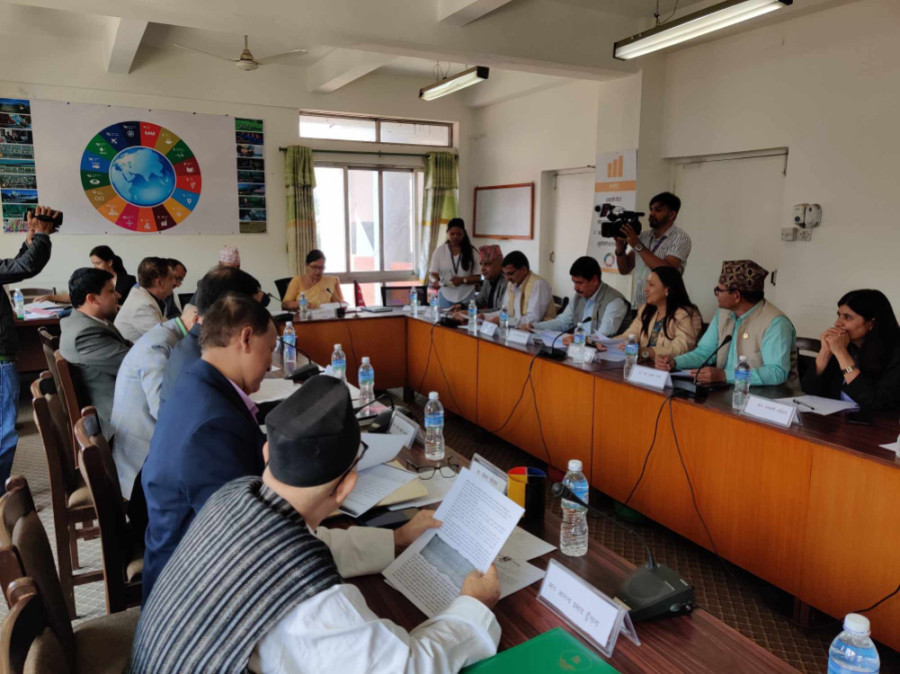
Anil Giri
Amid opposition from two lawmakers, the Parliamentary Hearing Committee endorsed 16 of the 17 ambassadorial nominees on Thursday.
Lawmakers from the Janata Samajbadi Party Nepal (JSP-Nepal) and the Rastriya Swatantra Party (RSP) registered their differing views over four nominees—Kapil Shrestha, Netra Prasad Timilsina, Dhan Prasad Pandit, and Shankar Prasad Sharma, ambassadorial nominees for South Africa, Malaysia, Israel, and India, respectively, but the committee endorsed them through a majority vote.
Twelve nominees were unanimously endorsed.
In his written opposition to the nominations, Dol Prasad Aryal of the RSP mentioned that all four nominees, who faced various allegations during the hearings, should not be appointed as they do not hold the high moral standards set by the constitution.
On Shrestha, Aryal pointed to Article 248 (8) of the constitution, which bars former chairpersons and commissioners of the National Human Rights Commission from being appointed to other government positions.
Shrestha lacks the high moral ground, said Aryal in his differing opinion registered in the House committee. He argued that such decisions will pave the way for appointing individuals with questionable morality in the future as well.
In Pandit’s case, Aryal claimed that he was fined Rs15,000 by a court after Pandit was found hiding information, therefore he should not be appointed as ambassador. Aryal said considering persons of questionable moral conduct for such high-profile appointments would be a violation of the constitution.
Similarly, Aryal raised concerns about Timilsina, the ambassadorial nominee for Malaysia, who has an ongoing court case against the government.
A complaint was filed against Timilsina in the House committee where he was accused of misusing the letter head of the Nepal Red Cross Society when he was the chairman. But Aryal did not express any reservations about Sharma, who is proposed for India. Lawmakers from both the ruling and opposition parties were divided over the nominations, but consensus could not be reached as Aryal and Adhikari were firm in their opposition.
The government had recommended Naresh Bikram Dhakal (Saudi Arabia), Prof Dr Kapilman Shrestha (South Africa), Prof Dhana Prasad Pandit (Israel), Ram Krishna Bhattarai (Sri Lanka), Sanil Nepal (Spain), and Dr Shail Rupakheti (Germany) for ambassadorial positions.
Initially, Kanta Rijal was nominated for Australia, but later replaced by Chitra Lekha Yadav. Incumbent Foreign Secretary Sewa Lamsal has been recommended for the European Union and Brussels, but these nominations have yet to be sent to the Parliamentary Hearing Special Committee.
Other nominees include Lok Darshan Regmi (USA), Chandra Kumar Ghimire (UK), Shiva Maya Tumbahangphe (South Korea), Junga Bahadur Chauhan (Russia), Ramesh Chandra Poudel (Qatar), Prof Dr Krishna Prasad Oli (China), Dr Sumnima Tuladhar (Denmark), Dr Netra Prasad Timilsina (Malaysia), Prakash Mani Pokhrel (Portugal) and Rita Dhital (Pakistan).
Taking exception to the nominations, the hearing committee on September 9 summoned Foreign Minister Arzu Rana and questioned why the government failed to make the appointments inclusive.
On July 29, the government had nominated 17 ambassadors and recalled several others. But the nominations were criticised for failing to honour the spirit of inclusiveness.
Meanwhile, Prakash Adhikari of the Janata Samajbadi Party Nepal (JSP-Nepal) has registered a written objection against Sharma, Timilsina, Shrestha and Pandit stating that Article 282(2) requires ambassadorial appointment to be inclusive. He said current nominations have not accommodated Madhesi, Dalit, Tharu, Muslim and other clusters.
On Sharma, Adhikari said that his appointment violates the spirit of the ambassadorial appointment directive of 2075 BS. Aryal of the RSP and Adhikari of the JSP shared similar concerns about three other nominees.
The committee postponed the endorsement of Ramkrishna Bhattarai, the proposed ambassador to Sri Lanka, citing unavailability of his bachelor’s degree certificate.
“We have instructed him [Bhattarai] to submit the required documents,” said Ishawri Neupane, the chairman of the hearing committee.
The government’s nominations have drawn widespread criticism for allegedly neglecting inclusivity and established criteria for such positions.
Kanta Rijal, who had been proposed as ambassador to Australia, was recalled due to performance concerns during her previous term in Israel. Subsequently, the government nominated former lawmaker Chitra Lekha Yadav in her place.
Ambassadors nominated by the government are appointed by the President after they are endorsed by the parliamentary hearing committee.
The nominations were approved with the support of the opposition party, CPN (Maoist Centre). While the Maoist Centre lawmakers on the hearing committee did not object to any of the nominations, they did raise a few questions during the discussions.




 14.86°C Kathmandu
14.86°C Kathmandu
